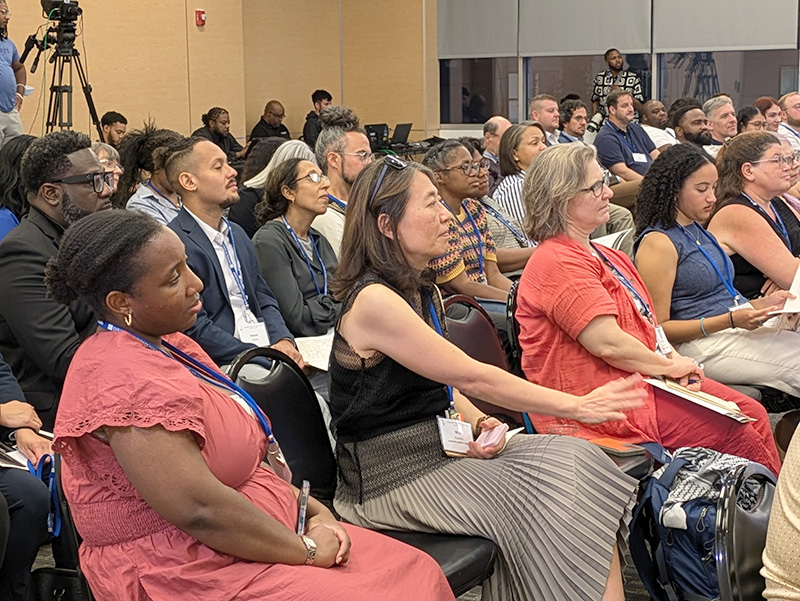On September 19–21, 2024, CIC hosted a conference on Independent Colleges and the Legacies of Slavery at the National Civil Rights Museum (NCRM) in Memphis, TN. The conference was a culmination of CIC’s multiyear initiative, Legacies of American Slavery: Reckoning with the Past, which was launched in 2020 to help independent colleges and their communities explore the history, afterlives, and continuing effects of race-based slavery. The initiative has encompassed student and faculty research, teaching, collaborations between colleges, and many kinds of community engagement. Participants in the Memphis conference included representatives from the seven CIC member institutions that served as regional organizers of the Legacies network, faculty and administrators from other colleges and universities, leaders of community-based organizations, public intellectuals, and leaders in the national conversation about reparations for slavery.
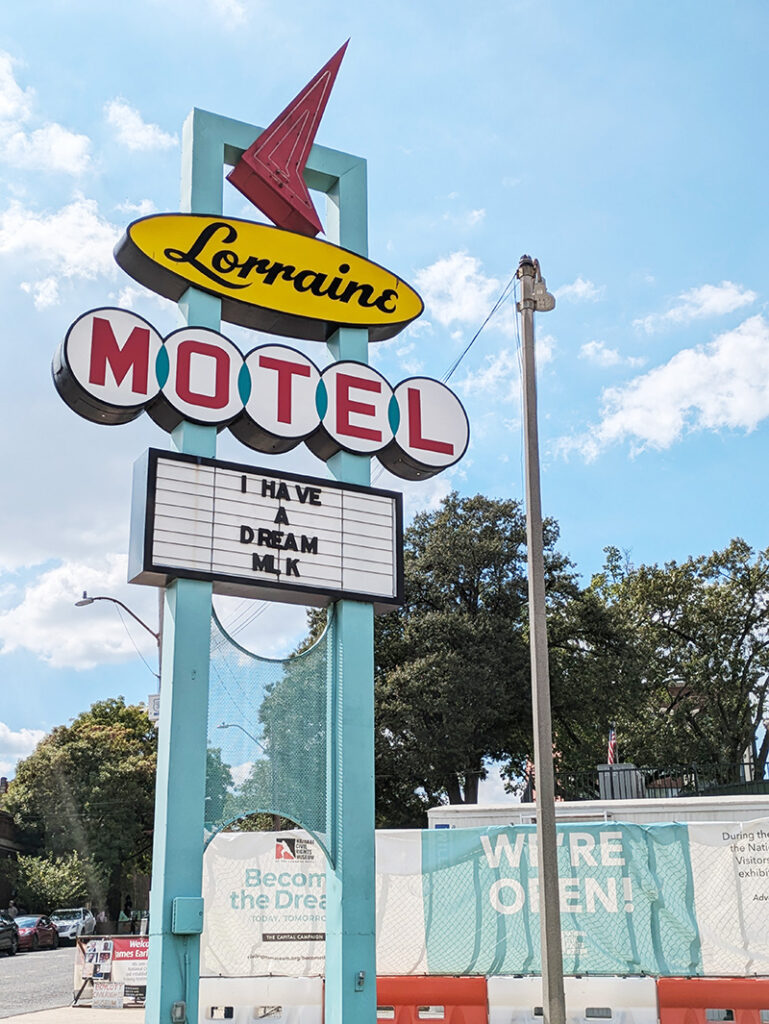
A short video snapshot of the conference, a copy of the program, and recordings of three sessions that were also livestreamed are available on the project website. The conference was organized in collaboration with the Gilder Lehrman Center for the Study of Slavery, Resistance, and Abolition at the MacMillan Center, Yale University (CT), and generously funded by the Mellon Foundation.
The conference was an opportunity to reflect on the important work accomplished during the Legacies initiative and to consider the unfinished work that independent colleges can still do to recognize, reckon with, and even repair the legacies of slavery. CIC President Marjorie Hass opened the conference by invoking the “sacred space” of the NCRM, which is located on the site of Martin Luther King Jr.’s assassination: “Just walking into this building, you are thrust immediately into history, its meaning, its legacies. … [Slavery’s] legacy continues to cast a painful shadow … [and we are] called by our commitment to our professional work as educators, to address this impact with honesty, with purpose, to help bear the pain.”
The opening panel of the conference was a wide-ranging conversation between Pulitzer prize-winning historian David Blight, New York Times columnist Jamelle Bouie, and public historian Christy Coleman, who directs the Jamestown-Yorktown Foundation. (Blight is director of the Gilder Lehrman Center at Yale and senior advisor to the CIC Legacies initiative.) Among other difficult topics, they discussed “myth-making and myth-believing about slavery” (in Bouie’s words) and the persistent challenge of inequality. Coleman concluded with a charge to the audience: “The core of inequality in America and why it persists is because the myths persist. We use the word reckoning so freely, but we really haven’t reckoned with or explored all of these things … together. I think that’s the key.”
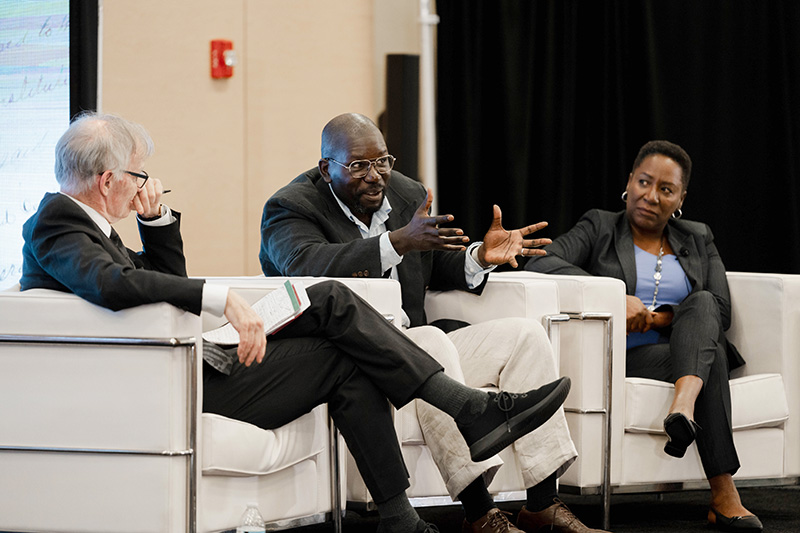
Other conference sessions focused on effective strategies for teaching about slavery, building and sustaining multi-institutional networks, and working with diverse community members. The final morning of the conference focused on the contentious topic of reparations and then the unique role of independent colleges and universities in addressing the legacies of slavery. The session on reparations explored several dimensions of the topic: reparations as a policy challenge, a theological challenge (especially important for colleges with a faith-informed mission), and a practical challenge for colleges of good will but limited resources. Cynthia Copeland, a prominent public historian who also co-chairs the Reparations Commission of the Episcopal Diocese of New York, opened the session on reparations with an expansive definition of the term: “the process to remember, repair, restore, reconcile, and make amends for wrongs that can never be singularly reducible to monetary terms.”
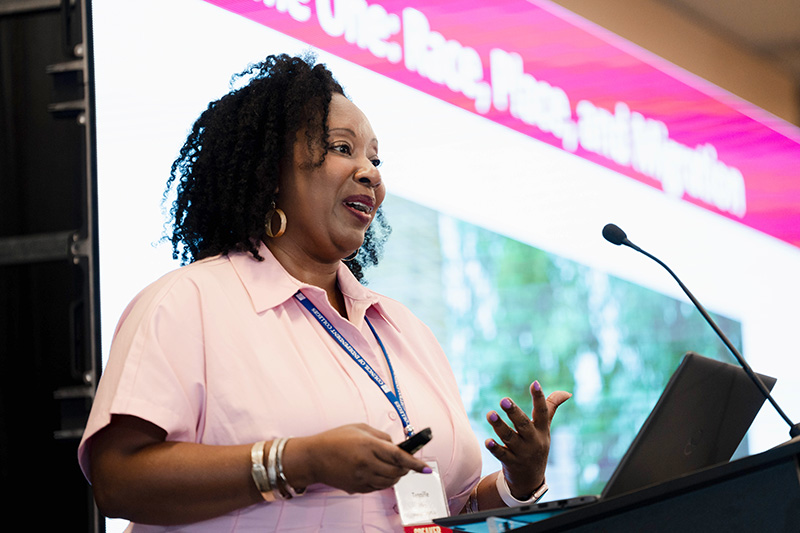
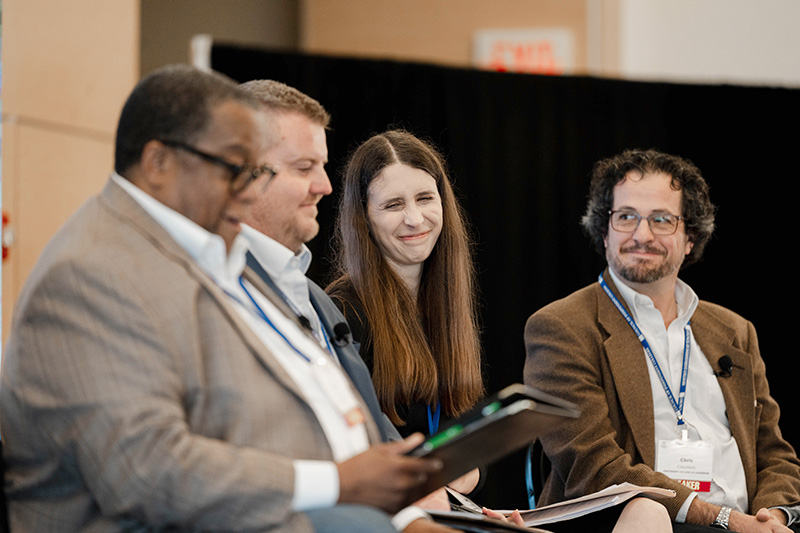
The closing session, moderated by Hass, focused on the “responsibility but also the opportunities” for independent colleges and universities to extend the work of reckoning with slavery. “Our public institutions are increasingly muzzled,” Hass noted. “So what is the responsibility that we have [as private institutions]? We’re often smaller, we’re often more fragile than public institutions. Yet this feels like a moment for courage.” The panelists responded that the best sources of courage were teachable students and institutional missions: “You [have] to tie this work into our mission,” said Cheryl Moore-Thomas, provost of Loyola University Maryland. “And once that happens, it moves this work from something that is good and just to something that is required and mandated because it’s part of our identity as an institution.”
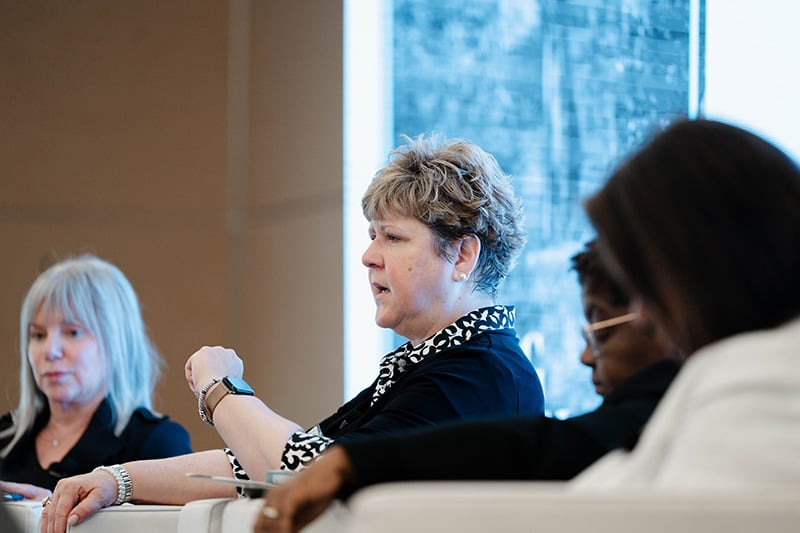
In Spring 2025, additional video from the conference, summaries of other work accomplished during the Legacies of American Slavery initiative, and additional resources will be posted to the project website.
